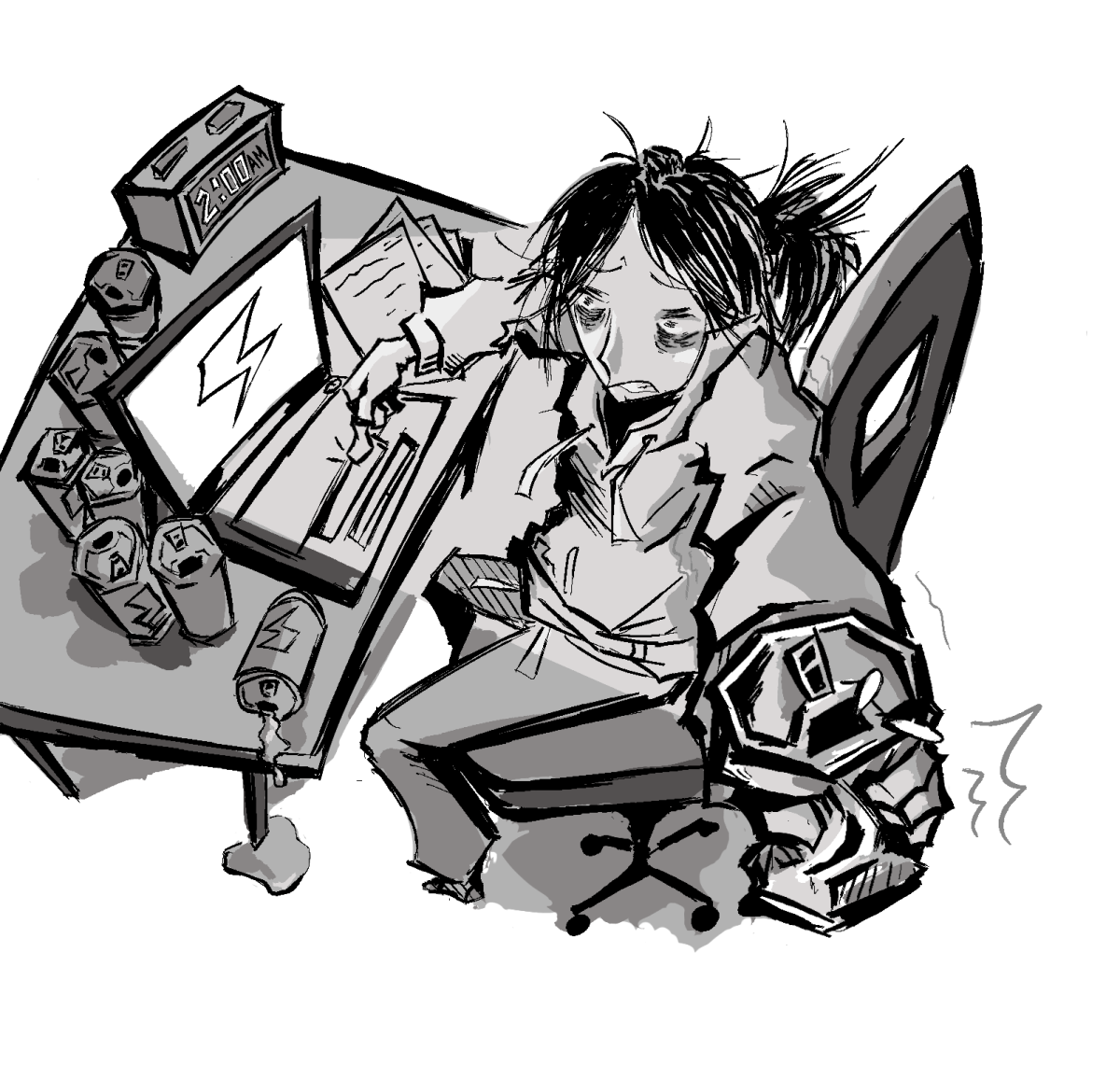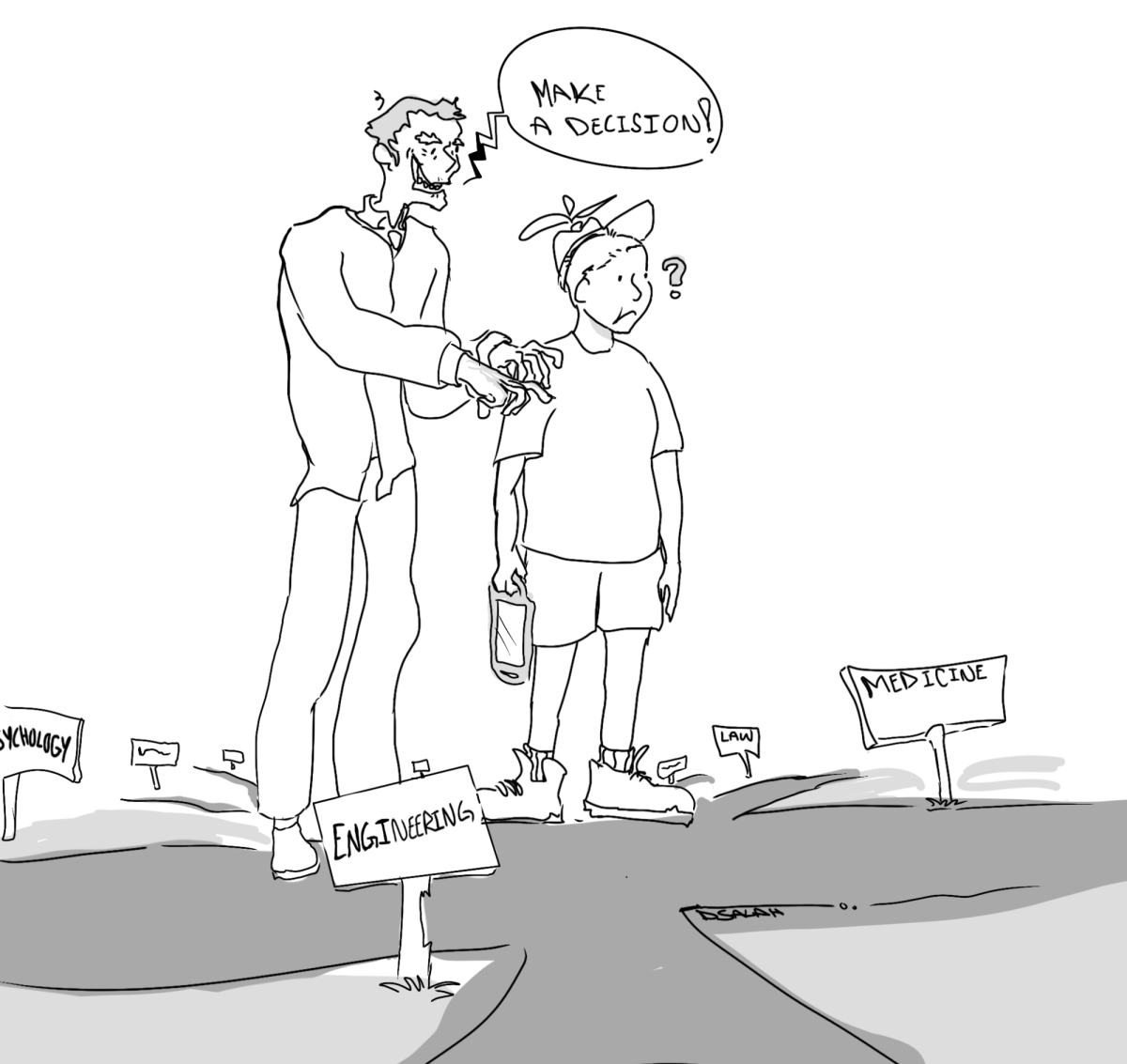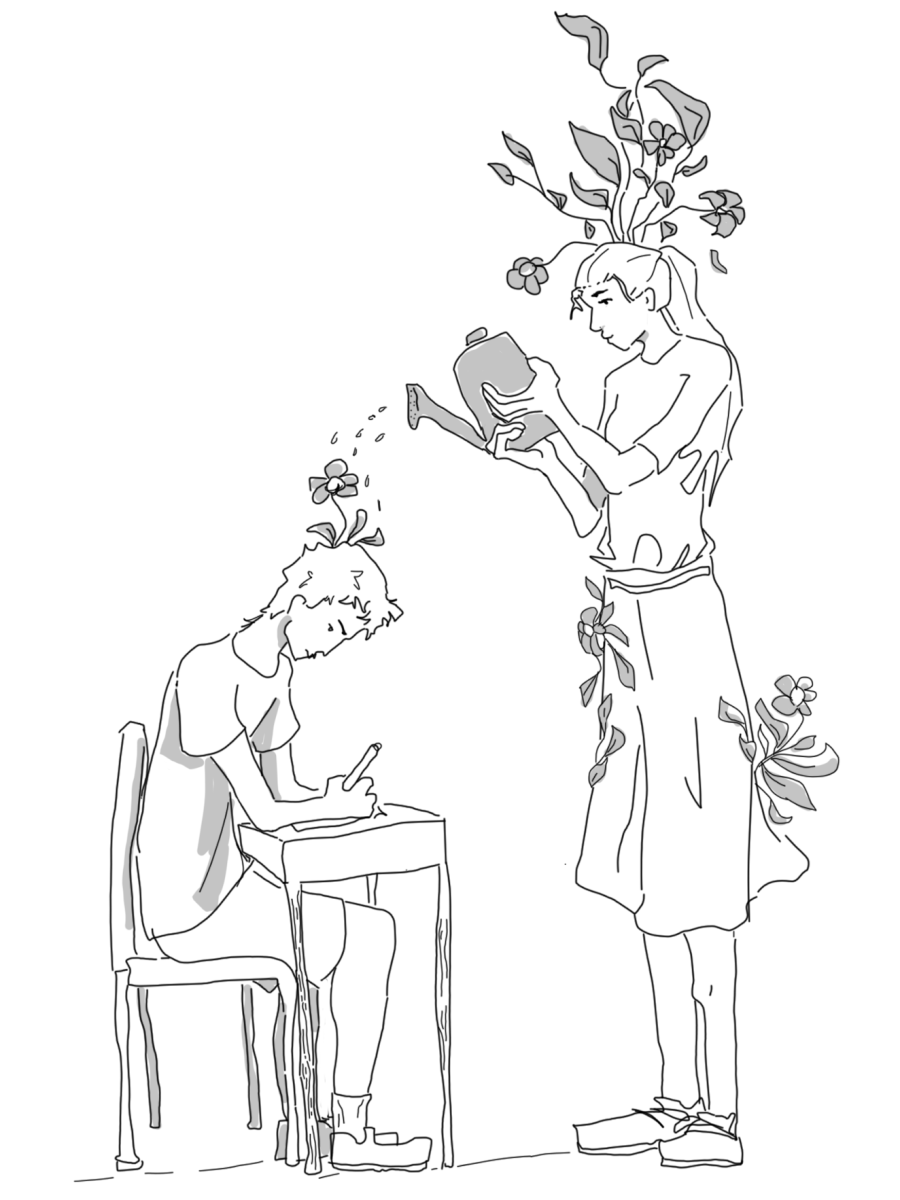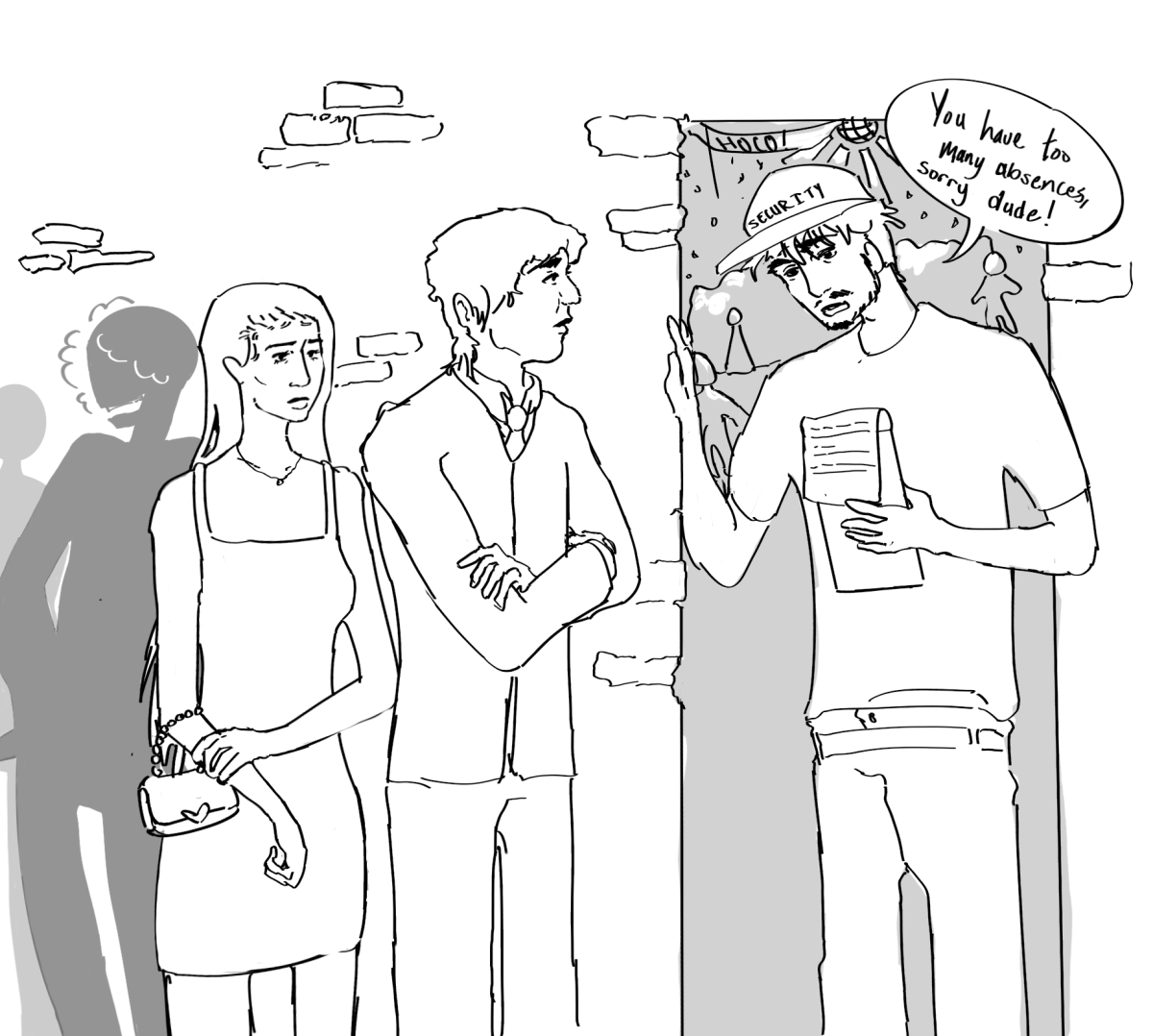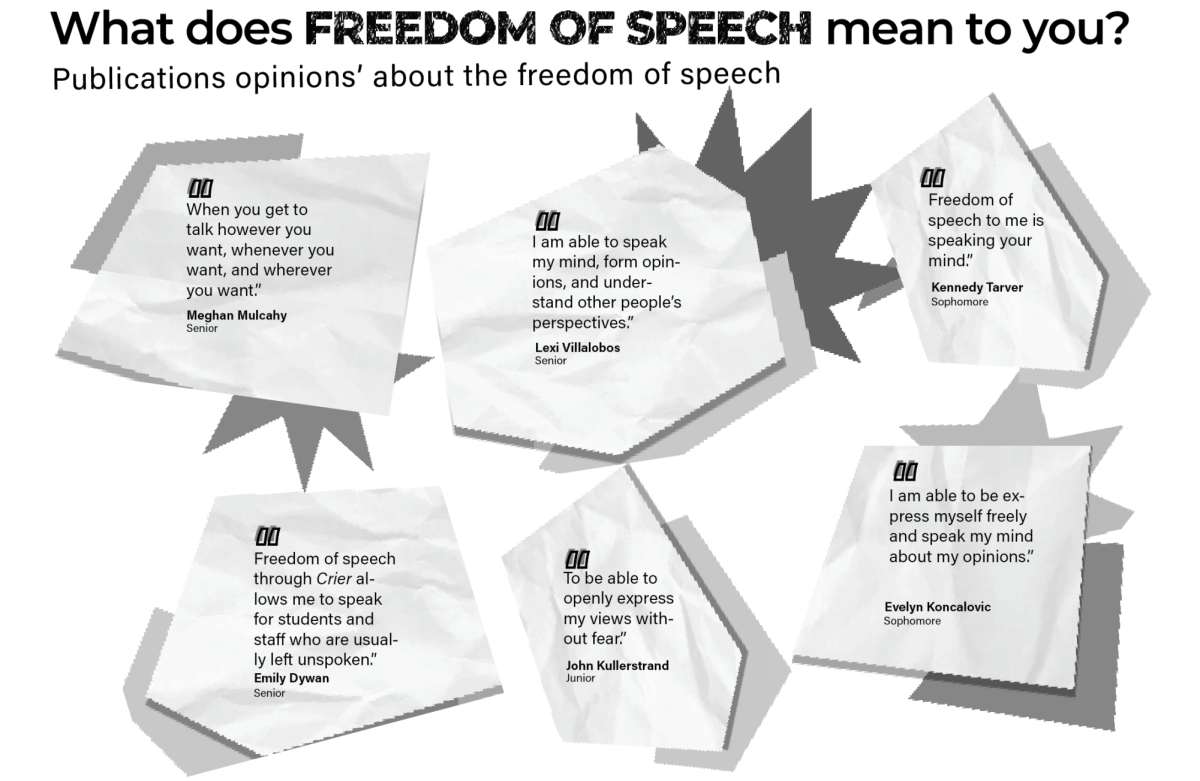With TikToks flooding our “For You Pages” of Sephora sample products littered with gunk and 10 year-olds placing their $110 retinol on the checkout counter, it is clear that social media influencers has a continuous effect on the generations below us. Although these children receive a lot of criticism and backlash, it mirrors our relationship with the internet as well.
The internet used to be a place—a physical place where a person could sit down at their computer and leave as they pleased. With phones, it has become an entity that follows people throughout their lives. Using your phone as you’re walking down the street is seen as its own way of connecting with the world, when it used to be an escape.
This transition has not been fully illustrated within a generation until now. Children have spent their entire childhoods interacting with the internet this way and know nothing else, while we have experienced its evolution. We may poke fun as the older generation, but it is actually hypocritical—we are the ones creating and supporting the ideas of “influencers,” microtrends and overconsumption that encourages this behavior. This is not a new concept: teenagers and young adults deem certain things cool and trendy, and pre-teens want to meet those standards. Introducing younger children to social media earlier has just made the cycle become quicker and more intense.
Social media has become inescapable, but that doesn’t mean the problems are unfixable. As the generations creating online environments, we need to be conscious of the audience and what exactly is being promoted. We, as Gen Z, should realize and prioritize face to face communication and realize it is more essential and meaningful than our online lives.
Our take:
Despite criticizing how younger generations interact with social media, we created this phenomenon and should be more conscious of what we post.





